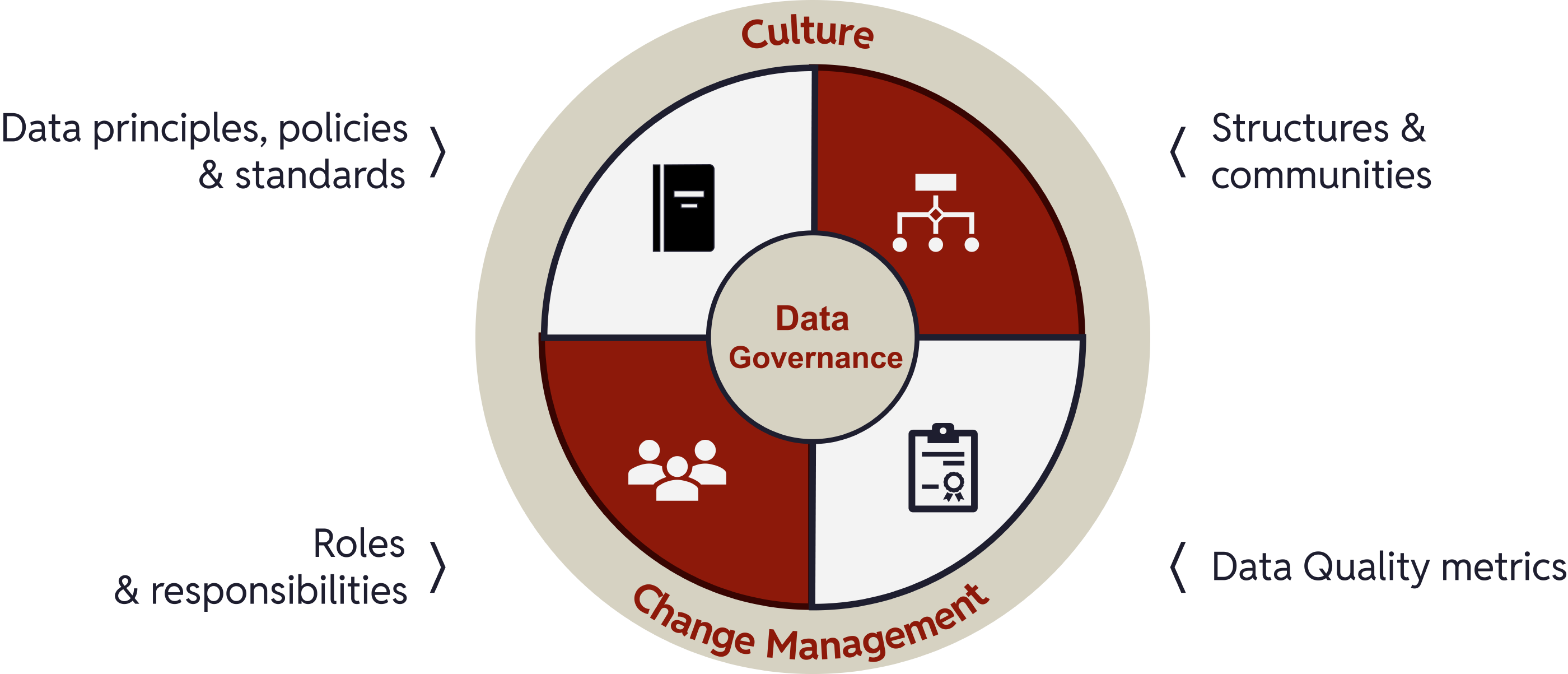Insights
Why Your Data Governance Might Fail, And How To Make Sure It Doesn’t.

Data governance is the foundation upon which organizations build reliable and usable data. It ensures structure, quality, and compliance with regulations. Yet, many companies struggle to implement it effectively. In this article, you’ll discover the 5 most common reasons for failing data governance initiatives. And more importantly, how can you ensure that data governance is not just a policy on paper, but a valuable business asset?
Quick Access:
- Lack Of A Clear Vision
- Lack Of Integral Change Management
- Unclear Structures And Roles
- Underestimating Data Quality
- Data Governance Is Not Solely An IT Matter
- How To Make Your Data Governance Succeed
Lack Of A Clear Vision
One of the biggest pitfalls in data governance is the absence of a clear, overarching vision. Many organizations start with data governance initiatives without fully understanding why it is necessary or it’s alignment with their business goals. As a result, teams implement policies and structures aimlessly, with little focus on real-world impact. As a result, governance rapidly becomes an administrative burden rather than a strategic asset.
Success in data governance starts with a well-defined strategy that aligns with business needs and is supported by clear policies and principles. It should not be done just to follow regulations, but rather as a means to improve your operational business and decision-making , reduce risks, and drive innovation in your operational business. When organizations treat governance as an ongoing process rather than a one-time project, the likelihood of success increases significantly.
Lack Of Integral Change Management
Another common reason for ineffective implementation of data governance is the belief that it is solely a technical concern. Often, responsibility is placed entirely on IT departments, while data quality and management should be done across the entire organization and is mainly a business responsibility. Finance, marketing, operations; every department works with data and therefore benefits from a clear governance framework.
When governance is confined to silos, policy and practice become disconnected. It is essential to build a business culture where everyone understands why governance matters and what role they play in it. This requires clear communication, training, and engagement from different departments. Only then can data governance become a valuable part of the company’s culture.
Unclear Structures And Roles
Even with a strong governance strategy, the absence of clearly defined ownership, accountability and decision structures can lead to failure. Who is responsible for specific datasets? Who ensures data quality and compliance? Many organizations lack a structured framework that outlines these roles.

By appointing data owners and data stewards with clear responsibilities, governance processes become actionable. Data ownership should not be an abstract concept but a fundamental part of daily operations. When employees understand their roles and how their work contributes to overall data quality, governance becomes far more effective.
Underestimating Data Quality
Another major challenge is the misconception that governance is just about policies. Without a strong foundation of clean, consistent, and well-integrated data, governance efforts have little impact. Poor data quality increases compliance risks, leads to inefficiencies, and makes it harder to make decisions and create reliable insights in your daily operations.
A successful governance strategy must prioritize ongoing data quality improvement. This involves investing in master data management, data integration, validation processes, and continuous monitoring to ensure that data remains reliable not just today, but also in the long run.
Data Governance Is Not Solely An IT Matter
Many organizations still think that data governance is a responsibility of the IT department and that a solution for their data problems can be found in a new tool or platform. While technology plays a crucial role, it is never the solution by itself. Without the right mindset and processes in place, even the most advanced tool can become an expensive failure.
Data governance is, above all, a change management process. It requires employee engagement, clear guidelines, and a culture where data-driven decision-making is the norm. By training employees, sharing best practices, and making governance tangible within the organization, the chances of success increase significantly.
How To Make Your Data Governance Succeed
The importance of data governance lies in ensuring reliable and high-quality data that optimizes business processes, minimizes risks, and supports strategic decision-making. However, data governance often fails not because of a lack of technology but due to a lack of strategy, ownership, and cultural integration. Without a clear vision, organization-wide commitment, and a strong focus on data quality, governance remains a theoretical concept with little practical impact.
Achieving effective data governance requires more than just policies. It demands a clear strategy, defined ownership, and an all-round data-driven culture. Squadra helps organizations establish a structured approach, integrating the right tools and expertise to ensure that governance delivers real business impact beyond compliance. With a strong foundation in place, organizations can improve data quality, enhance decision-making, and unlock new opportunities.
Want to learn how your organization can successfully implement data governance? Contat us for a free consultation and take the first step toward better data management.
